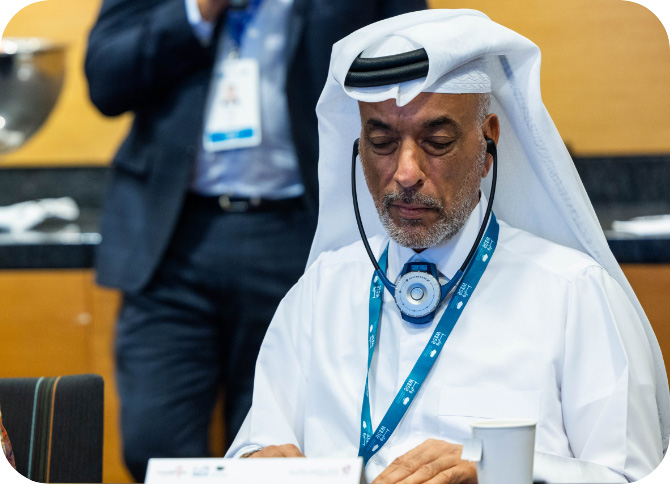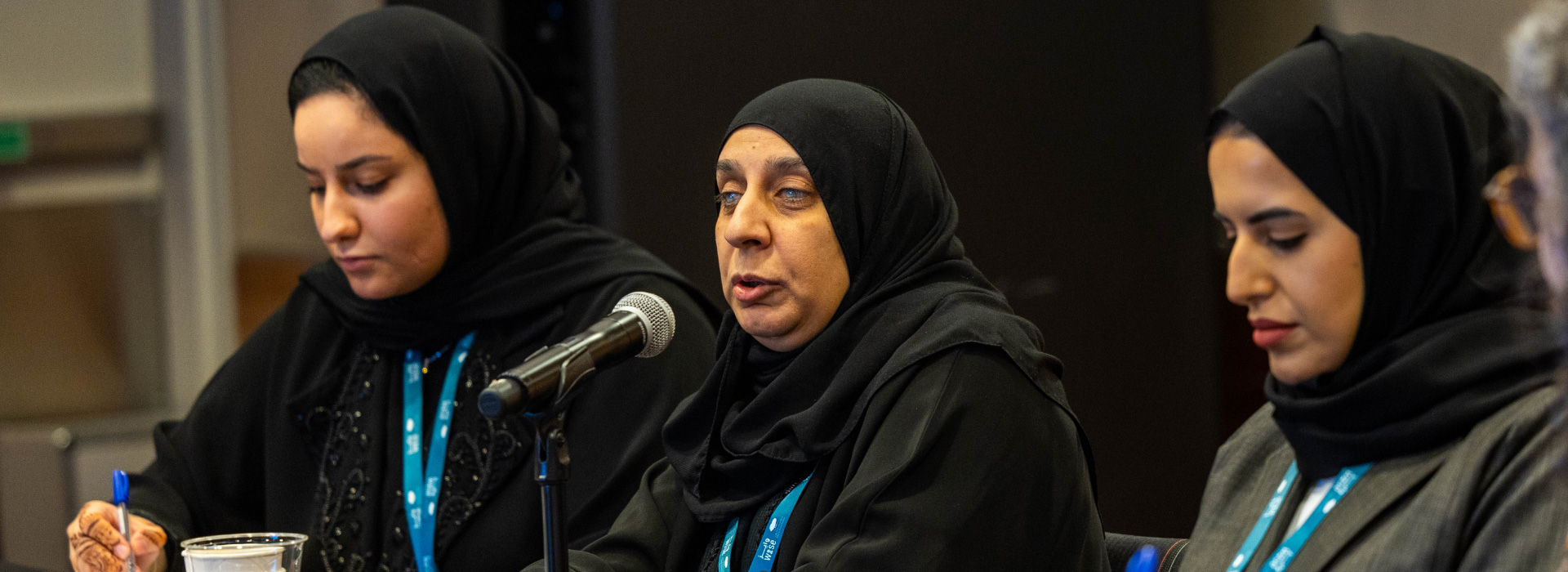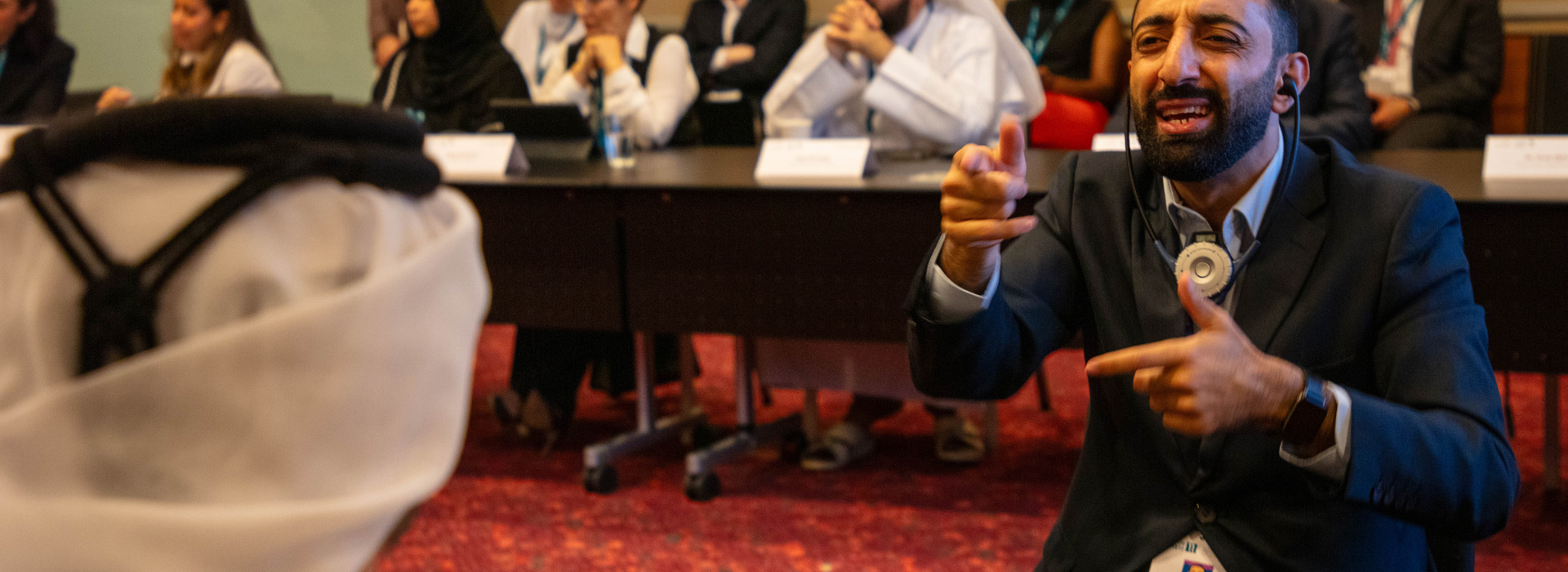AI for Accessibility and Inclusion
Share this pageAs the world rapidly transitions into an AI-driven era, understanding the challenges and opportunities it presents to the global education landscape becomes crucial.
In this context, a round-table discussion on Artificial Intelligence (AI) for Accessibility and Inclusion was held during the World Innovation Summit for Education (WISE) to explore AI's transformative potential and the challenges related to equity, accessibility, and inclusion.
The round-table was a collaborative effort between WISE, the Ministry of Social Development and Family, and Sasol Qatar’s Accessible Qatar initiative. United by a shared goal to encourage greater community engagement and advocacy for accessible and inclusive innovation consistent with Qatari social and cultural norms, the fully accessible session included representation from persons with disabilities, academia, industry, policy-making entities, as well as disability advocates and educators.
The dialogue and subsequent report highlight the importance of AI in advancing accessibility and inclusion through collective efforts and emphasize the need for a greater focus on privacy, equity, and culture.
Executive Summary
Artificial Intelligence (AI) has emerged as a powerful tool to drive positive change in today's fast-moving world of technological advancements. We cannot imagine life without it. We carry it in our bags, we knowingly and unknowingly are constantly feeding it, shaping it and training it in what we want it to do. Yet despite the hype, AI is simply a ‘smart assistant’ and in fact, Artificial intelligence is ‘all but intelligent’! It is simply an extension of who we are. It creates nothing new; it simply compiles, correlates and rearranges the information we have fed it to produce what we hope to be better versions of what was there before, be it better doctors, better teachers, better learners, etc. It is not up to us to tell AI what we want it to be, but what we as humans want to be.
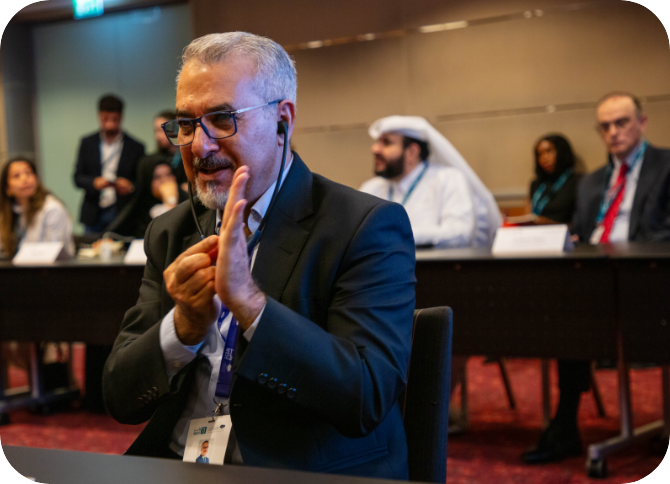
For context, it is worth noting that data within the Worldwide Artificial Intelligence Spending Guide, published in March 2023 by the International Data Corporation (IDC) shows that global spending on artificial intelligence (AI), including software, hardware, and services for AI-centric systems*, reached $154 billion in 2023, an increase of 26.9% over the amount spent in 2022. The ongoing incorporation of AI into a wide range of products will result in a compound annual growth rate (CAGR) of 27.0% over the 2022-2026 forecast, with spending on AI-centric systems expected to surpass $300 billion in 2026.
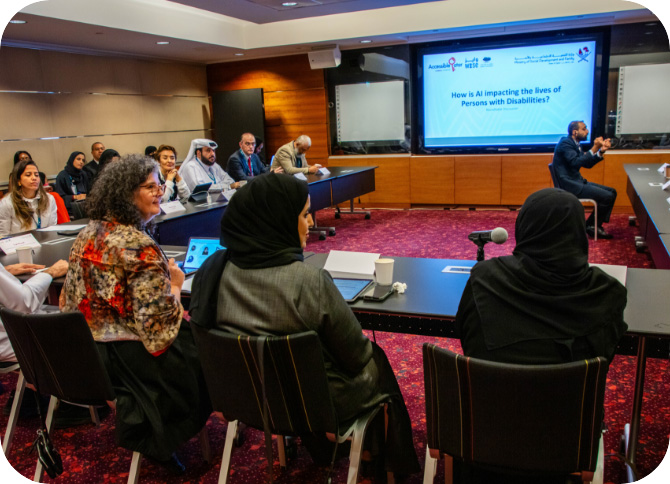
I would like to say that much of this money was being dedicated towards persons with disabilities and bring wishful thinking into the notion that all AI applications being developed for good are potentially helpful for Persons with Disabilities; however, I suspect this is far from the reality. We must consider how AI is now part of everybody’s daily life (whatever our profile may be).
Don’t assume the needs of persons with disabilities, but engage with them, ask them about their needs and go from there.
Dr. Josélia Neves (PhD)The question remains whether those applications considered the needs of the various end-users. Do they comply with the established accessibility that exists but is often not implemented? Who is accountable for ensuring compliance? How involved have end -users from across society been involved? This brings us back to our role in shaping those tools and systems that are now part of everyday life and highlights our responsibility to be actively involved in developing specific tools to make the lives of specific individuals and our lives more productive and meaningful. Our responsibility at a personal and professional level is to actively engage with all stakeholders involved in this mammoth enterprise and outcome. We are being called to action and must act immediately to be seen and heard. We are known for doing a lot of talking. This is the moment to start doing the walking!
The recommendations presented are a good start, with practical guidelines based on insights gathered during and following the WISE Summit 2023 Partner session in collaboration with Sasol’s Accessible Qatar & the Ministry of Social Development Family (MSDF). Such inclusive round table sessions represent the voices, concerns and priorities of Disability advocates, industry, academia and government entities who all highlighted issues such as limited awareness, cultural sensitivity, and the need for ethical AI practices and governance that could add significant value to enhancing AI accessibility and inclusivity in Qatar.
